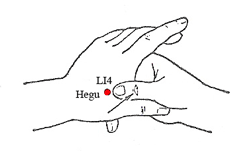The health of the mother during pregnancy is the most important, keeping in mind that the baby depends on the mother for everything, from the food nutrients to oxygen. Anything that might compromise the health of pregnant mother may lead to harmful effects to the baby, considering that they are developing and require a comfortable supply of food nutrients without any unwanted substances coming in. Insect repellant sprays are used by mothers to prevent insect bites i.e. mosquito bites. When it comes to using bug spray while pregnant, some may argue that it is not safe to do so. Is it really safe or not?
Using Bug Spray While Pregnant—Is It Safe?
Fortunately, the answer is yes, most of the existing insect repellants are considered safe to use during pregnancy. The manufactures of these products use different ingredients, some of which are considered generally safe for human use while others which are a little bit compromising. Caution should be taken when dealing with products that contain chemical DEET (N, N-ethyl-m-toluaminde or m-DET). Some people will be sensitive to this chemical substance and may experience vicious side effects while some other people may be comfortable using products with DEET but only if they follow the package instructions carefully.
Will it harm the baby? There have been numerous studies regarding the effects of DEET and there is no circumstance that has shown an increase in the birth defects. It’s important to note that when an insect repellant is applied on the skin, only about 5 to 10 percent will be absorbed into the blood. This is not such a significant amount to cause any deleterious effect to your baby.
Precautions on Choosing Bug Spray
Having mentioned all these information, you should always take caution when you are pregnant and use DEET in very low amounts or concentrations. Those products with a high amount of DEET will last longer; however, they do not provide extra or greater protection. In addition, there is an alternative to DEET--the citronella oil, which serves as a better alternative to DEET. Most of the products that have citronella oil are effective in repelling the insects, although there is limited data to approve this. There also exist no proven effects of citronella in regards to pregnancy.
Precautions on Using Bug Spray While Pregnant
For any pregnant woman using these products, it is highly advisable to stick to the instructions or the directions on the package of the product. EPA recommends the following steps when using insect repellants:
- You should only apply repellants to the exposed skin and clothing, as per the directions on the package. Don’t apply the repellants under your clothing.
- Make sure that you don’t use the repellants on cuts, irritated skin or open wounds.
- Don’t apply in regions such as your mouth and eyes. If you want to apply on your face, it’s wise to apply on your hands first rather than spraying directly to your face.
- Use only enough repellant to cover your exposed areas, applying more will not guarantee you better or longer lasting protection.
- Make sure to wash off the repellants with soap or bathe after you return to your home afterwards, this applies to people who use repellants on consecutive days or repeatedly in a day.
- If you realize that you get a rush or any other significant reaction, you should stop using the product and wash it off using mild soap and water. After that you can call the poison doctor for further guidance or visit the doctor with the repellant.
- You must wash your treated clothing before wearing it again.
- Don’t spray in enclosed environment or areas.
In addition there are other non-repellant precautions that you can take to avoid the insect or mosquitoes bites:
- Avoid going out especially at dusk since this is the time the mosquitoes are active and biting.
- Ensure you keep the windows and doors locked.
- Wear long sleeves and pants to avoid exposure when you are out.
- Wear pale colors, use unscented soaps, deodorants and shampoos as well as avoid using perfume when out.
What If I Am Travelling to Countries with Risks of Insect Borne Diseases?
Note that the problem of insect repellant may only come in, if you are travelling to a country where you can contract insect borne diseases. Your doctor can advise you on weighing the benefits and the risks of using DEET when you are traveling. This is because contracting the insect borne infections such as the West Nile Virus and malaria can be harmful to your baby. The HPA recommends that you use DEET if you’re travelling to malarial infected regions, and also make sure to consult your doctor on anti-malarial medicines.
More Questions on DEET and Pregnancy
1. Can I use DEET while breastfeeding?
Illnesses which results from mosquitoes and ticks can have devastating effects on the nursing mother. There exist no proven studies linking effects of DEET to breast feeding; however, it’s good to weigh out the benefits that you can get by using it to prevent illness against it effects. You should not apply the DEET on your nipple area.
2. Is DEET absorbed into my body when using it on my skin?
To be precise DEET is absorbed into the skin partially. The amount is very insignificant, about 10% maximum only, which cannot be considered harmful to your baby.
3. Can using DEET during pregnancy cause birth defects?
There is no proven birth defects associated with the use of DEET during pregnancy,
4. Can using DEET later in pregnancy cause any problems?
When used carefully and as recommended, DEET doesn’t cause any problems later in pregnancy. Thus pregnant mothers ought to follow the package directions every time.
5. What if the baby’s father uses DEET?
Parental use of the repellants at the time of conception as well as during pregnancy does not cause any harm to the developing baby.







